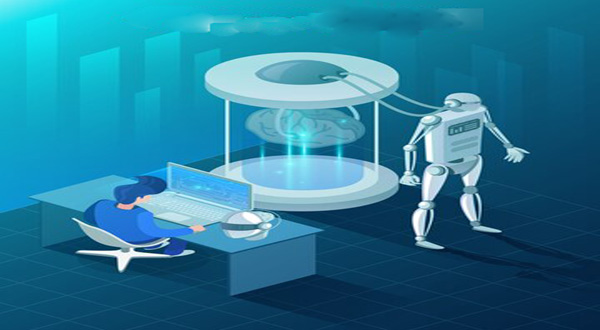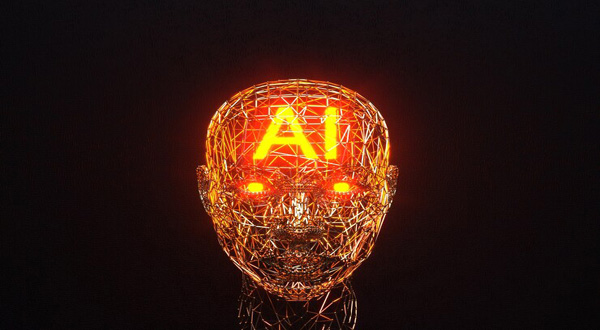Unveiling the Best Definition of Artificial Intelligence
- Update Time : Wednesday, February 28, 2024
- 25 Time View

Introduction:
Unveiling the Best Definition of Artificial Intelligence
:Welcome to the world of Artificial Intelligence (AI), where machines learn to think and act like humans! Have you ever wondered what exactly AI is and how it’s shaping our future? In this comprehensive guide, we’ll explore the best definition of artificial intelligence, breaking it down into simple terms that everyone can understand.
Table of Contents:
| Sr | Headings |
|—–|———————————————-|
| 1 | Understanding Artificial Intelligence |
| 2 | Evolution of Artificial Intelligence |
| 3 | Types of Artificial Intelligence |
| 4 | Applications of Artificial Intelligence |
| 5 | Ethical Considerations in AI |
| 6 | Challenges and Limitations of AI |
| 7 | Future of Artificial Intelligence |
| 8 | Impact of AI on Society and Industries |
| 9 | Myths vs. Reality: Debunking Misconceptions |
| 10 | Conclusion |
Understanding Artificial Intelligence:
Artificial Intelligence, often abbreviated as AI, refers to the development of computer systems capable of performing tasks that typically require human intelligence. These tasks include learning, reasoning, problem-solving, perception, and language understanding. In simpler terms, AI enables machines to mimic cognitive functions associated with human minds.
Evolution of Artificial Intelligence:
AI has come a long way since its inception. Initially, AI focused on rule-based systems and symbolic reasoning. However, with advancements in technology and the availability of vast amounts of data, machine learning and deep learning have revolutionized the field. Now, AI systems can learn from data, recognize patterns, and make decisions without explicit programming.
Types of Artificial Intelligence:
There are two primary types of AI: Narrow AI and General AI. Narrow AI, also known as Weak AI, is designed to perform specific tasks within a limited domain, such as virtual assistants like Siri and Alexa. On the other hand, General AI, or Strong AI, would possess the ability to understand, learn, and apply knowledge across different domains, akin to human intelligence.
Applications of Artificial Intelligence:
AI finds applications across various sectors, including healthcare, finance, automotive, retail, and entertainment. From diagnosing diseases and detecting fraud to autonomous vehicles and personalized recommendations, AI is revolutionizing industries and enhancing efficiency.
Ethical Considerations in AI:
As AI continues to advance, ethical considerations become increasingly important. Questions regarding data privacy, algorithm bias, job displacement, and autonomous weapons raise concerns about the ethical implications of AI technology. It’s essential to address these issues to ensure responsible development and deployment of AI systems.
Read More: Unraveling the Best Definition of Artificial Intelligence PDF
Challenges and Limitations of AI:
Despite its remarkable capabilities, AI still faces several challenges and limitations. These include data quality and availability, interpretability of AI models, ethical concerns, cybersecurity threats, and the potential for job displacement. Addressing these challenges is crucial for the continued progress and responsible use of AI.
Future of Artificial Intelligence:
The future of AI holds immense potential for further advancements and innovation. As technology continues to evolve, AI systems will become more sophisticated, capable of solving complex problems and enhancing human capabilities. However, it’s essential to approach AI development with caution and ethical considerations to mitigate potential risks.
Impact of AI on Society and Industries:
The impact of AI on society and industries is profound and far-reaching. While AI presents opportunities for increased efficiency, productivity, and innovation, it also poses challenges such as job displacement and economic inequality. Understanding and managing these impacts is essential for harnessing the full potential of AI while addressing societal concerns.
Myths vs. Reality: Debunking Misconceptions:
There are many misconceptions surrounding AI, fueled by popular culture and misinformation. It’s crucial to separate myths from reality to have a clear understanding of AI’s capabilities and limitations. By debunking these myths, we can foster a more informed discussion about AI and its implications for society.
Conclusion:
In conclusion, Artificial Intelligence represents a remarkable feat of human ingenuity, enabling machines to simulate human-like intelligence and perform tasks that were once thought to be exclusive to humans. As we continue to explore the possibilities of AI, it’s essential to approach its development and deployment with careful consideration of ethical, social, and economic implications.
Read More: Unraveling the Best Book on Artificial Intelligence: A Guide for the Curious Mind
FAQs (Frequently Asked Questions):
- What is Artificial Intelligence?
Artificial Intelligence refers to the development of computer systems capable of performing tasks that typically require human intelligence.
- What are the types of Artificial Intelligence?
There are two primary types: Narrow AI, designed for specific tasks, and General AI, which possesses human-like intelligence across different domains.
- What are the applications of Artificial Intelligence?
AI finds applications across various sectors, including healthcare, finance, automotive, retail, and entertainment, revolutionizing industries and enhancing efficiency.
- What are the ethical considerations in AI?
Ethical considerations in AI include data privacy, algorithm bias, job displacement, and autonomous weapons, raising concerns about responsible development and deployment.
- What are the challenges of Artificial Intelligence?
Challenges include data quality, interpretability of AI models, ethical concerns, cybersecurity threats, and potential job displacement, necessitating careful attention for responsible AI development.
Artificial Intelligence continues to shape our world, offering unprecedented opportunities and challenges. By understanding its definition, evolution, applications, and implications, we can navigate the AI landscape with knowledge and awareness.












